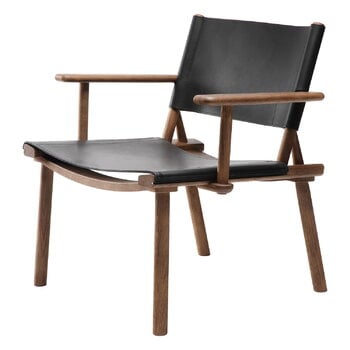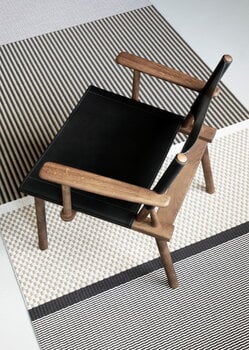Nikari's December Lounge chair, designed by Jasper Morrison and Wataru Kumano, has a natural and simplistically Scandinavian design. A combination of a wooden frame with armrests and a leather or canvas seat, the sleek lounge chair suits both modern and more traditional interiors either individually or together with the December ottoman.
In 2012, Nikari asked twelve designers and design studios to give their response to Nikari’s design philosophy in the form of a product. The project was called Project 2012 Designs for Nature: Nikari co-operates with the Finnish WWF and part of the sales is donated to protecting rainforests and forests globally.
Nikari products are made in Finland using only certified wood.











